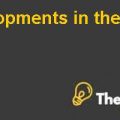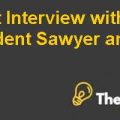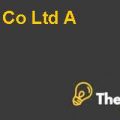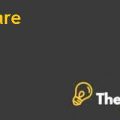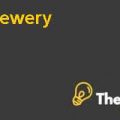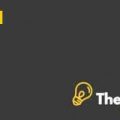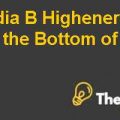Unilever’s New Global Strategy: Competing through Sustainability Case Study Solution
Accelerated change program evaluation
As such, after three days the takeover approach of Kraft Heinz (US$139.1 billion) which is a food conglomerate backed by Warren Buffet and three Brazilian billionaires to Unilever in order to become public, the takeover bid has been rejected by Unilever due to the fact that it seems no merit neither strategic nor financial for the shareholders of Unilever.
The top management of the company has discussed various reasons due to which the takeover would not benefit the company. It has been argued by the top management that the proposal would most likely undervalued the business as a whole as well as it would deliver little strategic and financial benefit for the long term opportunity for the shareholders and a company.
There are two reasons due to which the Kraft Heinz takeover approach has been brushed off by Unilever. The group management of consumer group has argued that offering “substantially undervalued” knorr soup maker and magnum ice cream at the price to earnings (P/E Ratio) of 19.1 times.
Kraft Heinz has been focusing on cost reduction so that it would be able to generate earning growth on immediate basis, but without substantially investing in the organic growth, its model depends on the merger and acquisitions M&A for the purpose of fueling the continued returns. Last week, speaking at the Consumer Analyst Group of New York investor conference, Graeme Pitkethly, a CEO at Unilever has explained that there are two different approaches which can be deployed to increase the shareholder’s value or he presented accelerated change program according to which the model of attractive return on invested capital, compounding return on investment, as well as robust balance sheet gives flexibility for merger and acquisition (M&A). This approach is inherently sustainable in long run and it can also generate high returns.
On the other hand, the next approach is to rely on leverage for generating the strong growth in earnings in short run, but without basis of strong organic growth, this approach depends on the portfolio expansion and repeated portfolio change. Also, the Unilever has put its major emphasis on merger and acquisition on expanding the personal care business through acquisition strategy which includes purchasing Dollar Shave Club. In a result, the increasing proportion of sales generated by Unilever comes from its personal care brands. The 28% revenue is generated by group in 2008 and grown to 38 percent in 2016. Another aggressive approach to cost is zero based budgeting program that has driven the tremendous and valuable insights into Unilever business.
In my opinion, it is to state that the senior executive team had made right decision at time and found a sustainable balance between stakeholder interest & shareholder interest. It is due to the fact that the accelerated change programs have bring innovation closer to customers and supported the ability of the company to roll out the products at speed while the global teams of the company are remained concerted on strategic launches. In addition to this, the company has business model that generated unlevered and high returns on its investment via building brand strength and compelling organic growth through sustained technical, investment, and benefit led innovation through R&D and an improvement approach to cost, the company surely do more to communicate the value creation from its existing and better strategic plans.
Alternatives:
For Unilever, its CEO is the great source of motivation with ability to turn issues into solutions. In context to the case, three alternatives have been suggested which are analyzed below on the basis of their pros and cons of the shortfalls faced by Unilever.
Increased sustainable living brands:
Production and addition of sustainable living brands in the portfolio with ability to contribute more than one goal of Unilever Sustainable Living Plan and with a purpose of sustainable living.
Pros:
- Brands with sustainable products have proven to be a potential key in the growth of organization.
- It significantly increases overall relation amongst portfolio of brands and key goals of Unilever.
- Focusing on production and addition of sustainable brands will provide Unilever with a competitive advantage among its rivals in the market.
- With increase concern over environment sustainability, products of Unilever will be greatly appreciated by its customers.
- Retention of employees with increase in the attraction of customers towards Unilever’s products giving rise to sales.
Cons:
- Changes in the production process to meet the standards and goals of Sustainable Living Plan will require significant increase in investment.
- Confirmation of goals match up will be hard for Unilever to configure for certain brands.
Build External Partnership:
Pivoting in the direction of agenda of transformation with focus on building external relations in order to support and amplify the work of organization.
Pros:
- Building partnerships will allow Unilever with the benefit of shared cost and responsibilities in managing operations.
- With shared responsibilities, the outcome of the product will be efficient and will have a positive effect on the community.
- Partnership allows each partner to use their specialized resources in as many effective manner as they can.
Cons:
- It is important while building partnership that their culture match with one another as well as their views considering the Unilever Sustainable Living Plan.
- Difference in views or ineffective way to drive operations might result in potential disputes among them.
- Both partners will be equally responsible in joint liability.
Get remaining two pillars on track:
Use of seven pillars on-track out of nine needs to get the remaining two pillars on track as they are affecting the performance of the organization and sales.
Pros:
- Focusing all the pillars of sustainability will completely meet the goals of Unilever’s Sustainable Living Plan.
- As there has been increase in the emission of greenhouse gases, while focusing on all pillars impact of Greenhouse gases and use of water is to be reduced.
- Improvement in each pillar of Unilever Sustainable Living Plan will effectively improve overall efficiencies.
Cons:
- It seems difficult to fix the habits of consumers as it is directly related to the mental ability of the consumer to shift its focus to something unusual to them.
- It is a time consuming approach to be adopted as satisfying and convincing anyone on what you are saying is right is somehow challenging.
- It will significantly not be an immediate source to generate potential profit rates.
Analysis of each alternative option that was needed to be considered has been done on the basis of their pros and cons. Therefore, in increasing sustainable living brands in portfolio only some changes will be required in changing the production process. Whereas, building partnership has many issues related to culture and views of the organization and the management in driving processes. Similarly, getting focus on retaining of remaining two pillars is a time consuming process and convincing people to follow their set standards is a challenge in itself. Therefore, option is best suited to be implemented…………
This is just a sample partical work. Please place the order on the website to get your own originally done case solution.
How We Work?
Just email us your case materials and instructions to order@thecasesolutions.com and confirm your order by making the payment here

